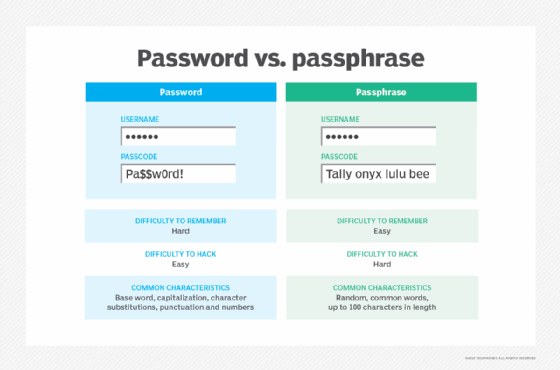Bypass definition is - a passage to one side; especially: a deflected route usually around a town. How to use bypass in a sentence. From Longman Dictionary of Contemporary English pass by phrasal verb 1 pass by (somebody/something) to go past a person, place, vehicle etc They all waved as they passed. Will you be passing by the supermarket on your way home? → passerby 2 pass somebody. Definition of pass-by phrasal verb in Oxford Advanced Learner's Dictionary. Meaning, pronunciation, picture, example sentences, grammar, usage notes, synonyms and more. We use cookies to enhance your experience on our website, including to provide targeted advertising and track usage. What does Bypass mean? Here you find 51 meanings of the word Bypass. You can also add a definition of Bypass yourself.
(redirected from passers-by)
Buck Passing Meaning
Also found in: Thesaurus.pas·ser·by
also pas·ser-by(păs′ər-bī′, -bī′)n.pl.pas·sers·by also pas·sers-by(păs′ərz-)pass•er•by
or pass•er-by
(ˈpæs ərˈbaɪ, -ˌbaɪ, ˈpɑ sər-)n., pl. pass•ers•by or pass•ers-by (ˈpæs ərzˈbaɪ, -ˌbaɪ, ˈpɑ sərz-)
| Noun | 1. | passerby - a person who passes by casually or by chance passer, passer-by pedestrian, footer, walker - a person who travels by foot |
Want to thank TFD for its existence? Tell a friend about us, add a link to this page, or visit the webmaster's page for free fun content.
Link to this page:
-->
In Visual Basic, you can pass an argument to a procedure by value or by reference. This is known as the passing mechanism, and it determines whether the procedure can modify the programming element underlying the argument in the calling code. The procedure declaration determines the passing mechanism for each parameter by specifying the ByVal or ByRef keyword.
Distinctions

When passing an argument to a procedure, be aware of several different distinctions that interact with each other:
/cfa1examweight-5c1c342f46e0fb00015c8e48.jpg)
Whether the underlying programming element is modifiable or nonmodifiable
Whether the argument itself is modifiable or nonmodifiable
Whether the argument is being passed by value or by reference
Whether the argument data type is a value type or a reference type
For more information, see Differences Between Modifiable and Nonmodifiable Arguments and Differences Between Passing an Argument By Value and By Reference.
Choice of Passing Mechanism
You should choose the passing mechanism carefully for each argument.
Protection. In choosing between the two passing mechanisms, the most important criterion is the exposure of calling variables to change. The advantage of passing an argument
ByRefis that the procedure can return a value to the calling code through that argument. The advantage of passing an argumentByValis that it protects a variable from being changed by the procedure.Performance. Although the passing mechanism can affect the performance of your code, the difference is usually insignificant. One exception to this is a value type passed
ByVal. In this case, Visual Basic copies the entire data contents of the argument. Therefore, for a large value type such as a structure, it can be more efficient to pass itByRef.For reference types, only the pointer to the data is copied (four bytes on 32-bit platforms, eight bytes on 64-bit platforms). Therefore, you can pass arguments of type
StringorObjectby value without harming performance.
Determination of the Passing Mechanism
The procedure declaration specifies the passing mechanism for each parameter. The calling code can't override a ByVal mechanism.
If a parameter is declared with ByRef, the calling code can force the mechanism to ByVal by enclosing the argument name in parentheses in the call. For more information, see How to: Force an Argument to Be Passed by Value.
The default in Visual Basic is to pass arguments by value.
When to Pass an Argument by Value
If the calling code element underlying the argument is a nonmodifiable element, declare the corresponding parameter ByVal. No code can change the value of a nonmodifiable element.
If the underlying element is modifiable, but you do not want the procedure to be able to change its value, declare the parameter
ByVal. Only the calling code can change the value of a modifiable element passed by value.
When to Pass an Argument by Reference
If the procedure has a genuine need to change the underlying element in the calling code, declare the corresponding parameter ByRef.
If the correct execution of the code depends on the procedure changing the underlying element in the calling code, declare the parameter
ByRef. If you pass it by value, or if the calling code overrides theByRefpassing mechanism by enclosing the argument in parentheses, the procedure call might produce unexpected results.
Example
Description
The following example illustrates when to pass arguments by value and when to pass them by reference. Procedure Calculate has both a ByVal and a ByRef parameter. Given an interest rate, rate, and a sum of money, debt, the task of the procedure is to calculate a new value for debt that is the result of applying the interest rate to the original value of debt. Because debt is a ByRef parameter, the new total is reflected in the value of the argument in the calling code that corresponds to debt. Parameter rate is a ByVal parameter because Calculate should not change its value.
Code
By Passing Meaning In Communication
See also
